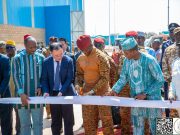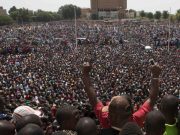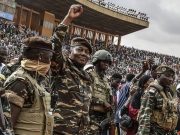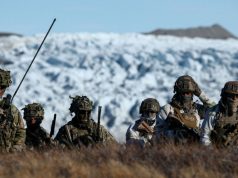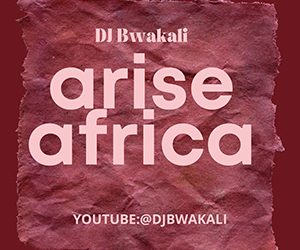What is unfolding in Tanzania in the aftermath of the post election massacre is not just a struggle between citizens and the state. It can become a deeper moral fracture between the country’s two largest religious communities. In the last few days, the Catholic Church and the Islamic leadership have issued two divergent responses to the massacre, and their words can shape the emotional terrain of a grieving nation.
During a memorial at St. Joseph’s Cathedral in Dar es Salaam, Archbishop Jude Thaddaeus Ruwa’ichi told the country that peace will never return unless justice is pursued. He reminded the nation that protest is not a crime and the punishment for protest is not death. His message was a call for accountability and truth, even though truth has become dangerous in Tanzania. It was a statement rooted in liberation theology, a tradition that has historically stood with oppressed communities from Latin America to South Africa.
Across the city, leaders of BAKWATA and other Islamic institutions were delivering a different message. They congratulated President Samia Suluhu Hassan, condemned destruction of property, and insisted that peace must precede justice. They said that justice can only be demanded in an environment of calm. They offered reconciliation, but warned that it should not apply to those who committed crimes. Their message prioritized stability and tempered responses during moments of social tension.
In normal times, two faith traditions expressing two moral lenses would not be alarming. Tanzania has lived with religious diversity for generations. But these are not normal times. Thousands have been killed. Entire neighborhoods have been scarred. Families have vanished. The state has responded not with transparency but with silence. In such a vacuum, spiritual voices carry political weight, whether they intend to or not.
And this is where the danger lies. A regime under pressure will always look for cracks that it can widen. Throughout history, rulers have mastered the art of turning faith into a political tool.
In Rwanda, the colonial and post colonial authorities manipulated the Catholic Church to enforce ethnic categories that later became fatal. Missionaries were encouraged to treat Tutsis as natural rulers and Hutus as natural subjects, creating a spiritual hierarchy that predated the genocide. When the violence erupted decades later, that religious divide was already embedded.
In Sudan, Omar al Bashir used Islam as a political weapon to isolate southern communities and legitimize war. He used Friday sermons to paint opponents as enemies of faith. Religious identity became a state tool that justified marginalization and violence.
In Ethiopia, the monarchy and later the Derg regime exploited the divide between the Ethiopian Orthodox Church and Muslim communities for decades. Each regime elevated one religious identity to consolidate loyalty. Whenever opposition grew, leaders inflamed old grievances to distract the public.
In Nigeria, the British sowed deep mistrust between northern Islamic sultanates and southern Christian communities by granting political power unevenly. Even after independence, politicians learned to use those inherited fractures to rally their bases and neutralize critics. Religion became a currency of control.
These examples show a simple truth. When citizens are grieving and confused, faith becomes an easy instrument for political manipulation. The moral language of religion can either unite or divide. It can comfort grieving families or be twisted into a tool of instability.
Tanzania now stands at a similar crossroads. If the Church pushes relentlessly for justice while Islamic leaders push relentlessly for calm, the regime may allow the fracture to widen until each community sinks deeper into its own narrative. Once that happens, attention shifts away from the real culprits. Instead of the state being questioned, the people begin to question one another. Instead of unity, rival interpretations of peace and justice become weapons that serve those who benefit from chaos.
This is why the moment is so dangerous. Tanzania does not need a debate about which comes first, peace or justice. It needs moral leadership that rejects the false choice altogether. Religious leaders on both sides have the capacity to protect the nation from being manipulated. They can insist that peace without justice is an illusion, and that justice without peace is impossible. They can form a united moral front that insists on truth, accountability, and healing.
If they fail, history shows what will follow. Once a regime discovers that religious difference can be turned into political armor, it will use it repeatedly. Faith will become a lever of control rather than a force for unity. And the country will move one step closer to a tragedy that could have been prevented.
Tanzania stands on the edge of that possibility. The question now is whether its spiritual leaders will rise above politics, or whether their honest but divergent convictions will be used to tighten the grip of those who caused this suffering.
The country’s future may depend on which choice they make.
djbwakali@gmail.com





